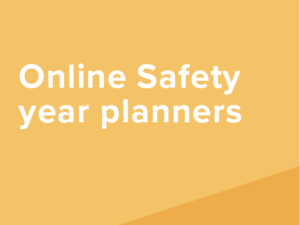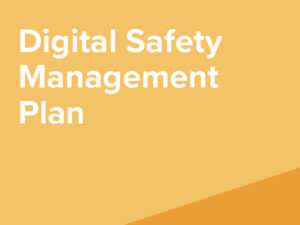Students may find things online that they never intended to see. If a student is exposed to upsetting content, it can hard to know how to help. Netsafe has developed the following advice to guide you through this challenging situation.
What to do if a student is exposed to upsetting content
Regardless of whether students have seen a video, an image or heard about it second-hand, young people may experience emotional distress given the nature of this content. If a student comes to you about something they have seen online, the most important thing you can do is take what they are saying seriously. The other things to do are:
- Try not to assign blame about how they came across the material
- Reassure them that it isn’t their fault
- Don’t trivialise what they have seen by saying that the material may not be real (it is important to deal with their feelings first)
- Provide comfort and assurance
- Normalise their response, e.g., “It’s normal to be scared/angry/upset/confused”
- Don’t overreact by taking away the technology – this will make them less likely to talk to you if something else happens, and it can make them feel like they are to blame
- Make sure that they know you are glad that they came to you about it
What is Netsafe’s advice if students see upsetting content
Please make sure that students are supported and have avenues to talk about how the content may be affecting them.
If young people express feelings about self-harm or suicide, this should be followed up with appropriate mental health support.
If students do come across content, we would strongly encourage you to report it to Netsafe. When reported, Netsafe may assist in having the content flagged and addressed promptly with the platform on which it appears.
It may be appropriate to involve members of your school’s community – guidance counsellors, Board of Trustees or even parents and whānau. If the material has been affecting many students or has caused considerable distress, letting the wider school community know is especially important.
Netsafe resources
Netsafe’s Responding to Digital Incidents Guide can help you find the appropriate response for your school’s circumstances. If you decide that it’s appropriate to reach out to parents and whānau, or if parents or whānau approach the school about the video, Netsafe has several helpful resources:
- Our page on helping young people exposed to upsetting content can help whānau navigate conversations with their young people
- Our Online Safety Parent Toolkit is a wider framework for helping parents navigate online safety with their young people
- For some whānau, parental controls may be an appropriate solution to help filter out graphic content
- If students would like further support, they can contact Youthline on free text 234 or call 0800 376 633
Netsafe can also provide advice for students or whānau who are concerned about material online.





